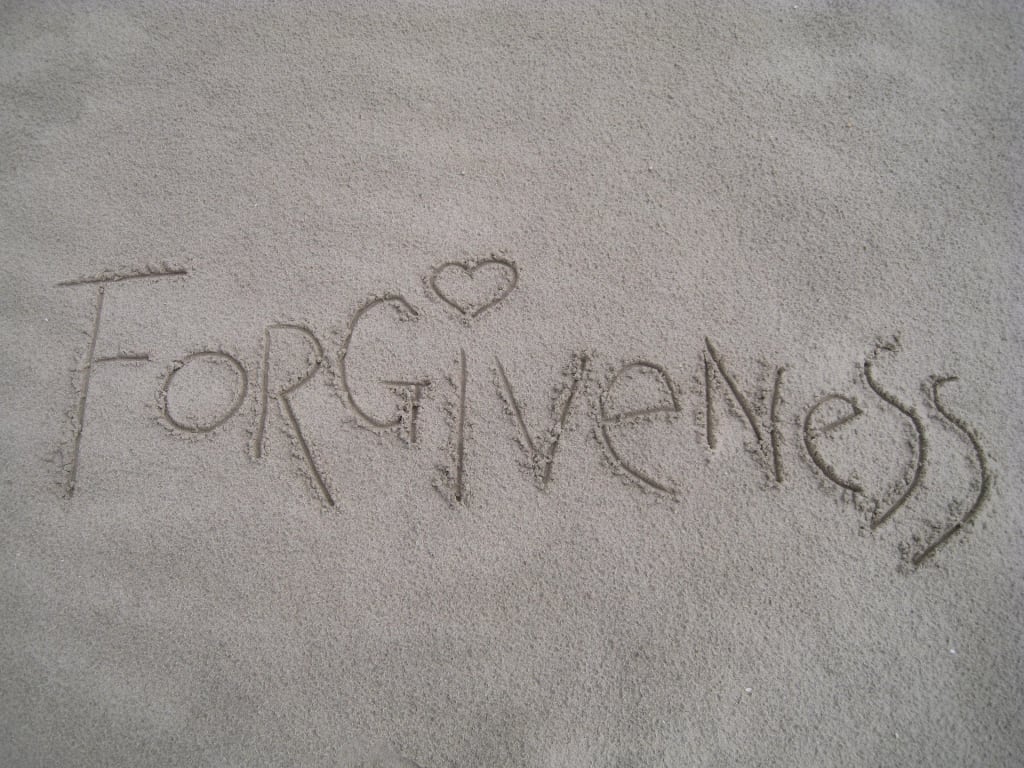Forgiving but Not Forgetting
Letting Go of Workplace Bullying

You read so often about the benefits of forgiveness, and how it's something that is done for your own benefit, not for theirs. I struggled to wrap my head around that, though, as I dealt with the life-changing after effects of workplace bullying.
What I think was hardest was that those same after effects weren't going to just magically go away just because I decided to forgive someone. There were a few people that were perpetrators of the bullying, some of whom had considerable power over me at work. One of these people was particularly cruel, and tried his damnedest to ruin my career by misrepresenting me, my capabilities, and my professionalism.
To some extent this horrible person succeeded, as a broad array of doors got slammed shut in my face. This was my punishment for trying to stand up for myself. I had talked to a lawyer and going to court would be an expensive proposition that in the end may still not salvage my career, so that was off the table.
I was left with my mental illness going full steam ahead and a couple of casual jobs that brought in a bit of money. And I was supposed to forgive the despicable people who wrought so much damage in my life? Forgive people who conducted themselves in such an unethical, harmful manner?
People of great wisdom have written about the healing power of forgiveness. Nelson Mandela said that, "when a deep injury is done to us we never heal until we forgive.” Okay, but how do I actually bring myself to do that?
His Holiness the Dalai Lama said that, “Practicing forgiveness does not mean accepting wrong doing.” That feels like it gets more to the point, separating the actions from the person. Still, how to do that when I can't help but occasionally fantasize about wanting to cause physical harm to the perpetrators, despite being someone who's not at all violent? How could forgiveness really feel like anything other than condoning the behaviours?
Mahatma Gandhi said, "The weak can never forgive. Forgiveness is the attribute of the strong." You're telling me.
But if I'm not strong enough to forgive, to be the bigger person, then who is in this situation? How can this idea of forgiveness be dealt with outside the bleakness I see in both past and future?
Then I discovered the song "Praying" by Kesha. One line in particular hit me really hard: "Some say in life you're gonna get what you give, but some things only can God can forgive". Suddenly everything started to fall into place. Now granted, I'm an atheist, so interpret God rather loosely as one's personal higher power, but the basic idea is still the same.
That shift in perspective allowed me to look at the situation in a whole new way. It's not up to me to forgive these people. The notion of forgiveness that was feeling like a burden to me is not my burden to bear. The burden of their actions is on them to bear until they seek absolution from their own higher power, whether that be from a being identified as God or through finding their way back to their own fundamental human goodness that they have strayed from. They will carry that burden, knowingly or not, willingly or not, until they are able to find forgiveness for themselves.
In realizing that the burden is theirs and not mine, I have found greater lightness, freedom, and closure. I arrived, although by a different route, at where I hoped to end up in this quest of forgiveness.
"I hope somewhere you're praying, praying. I hope your soul is changing, changing, I hope you find your peace, falling on your knees, praying." Praying, because without seeking forgiveness, they will remain in the darkness they have created.
My task now is to find ways to thrive. It's time for me to be "proud of who I am. No more monsters I can breathe again. And you said that I was done, but you were wrong and now the best is yet to come." Thank you Kesha for helping me to find a way to release the monsters and breathe.
About the Creator
Ashley L. Peterson
Mental health blogger | Former MH nurse | Living with depression | Author of 4 books: A Brief History of Stigma, Managing the Depression Puzzle, Making Sense of Psychiatric Diagnosis, and Psych Meds Made Simple | Proud stigma warrior






Comments
There are no comments for this story
Be the first to respond and start the conversation.